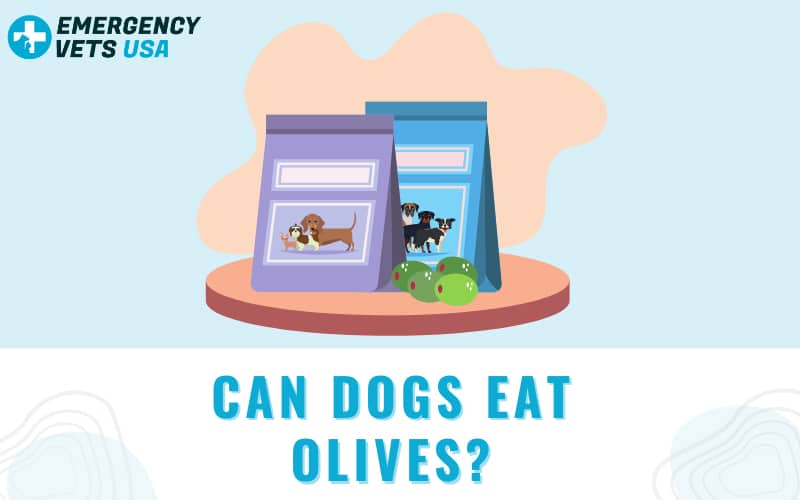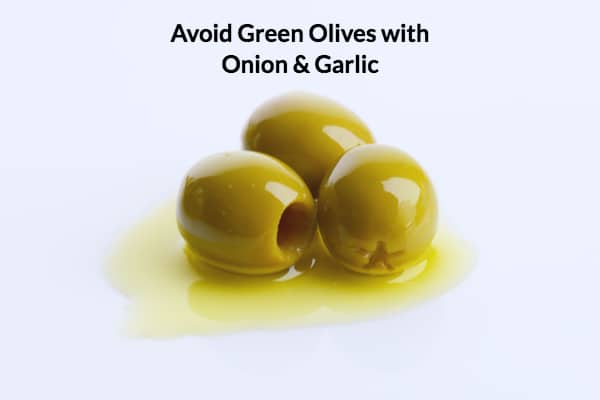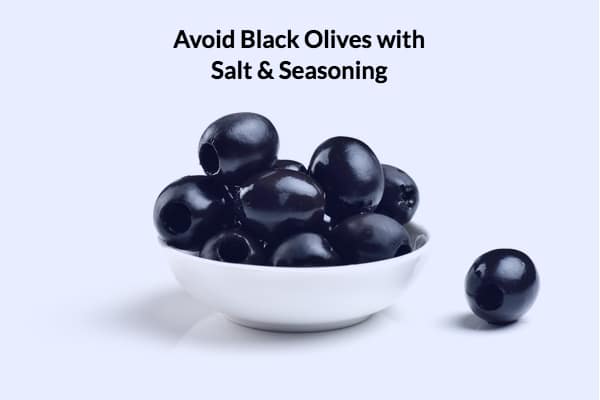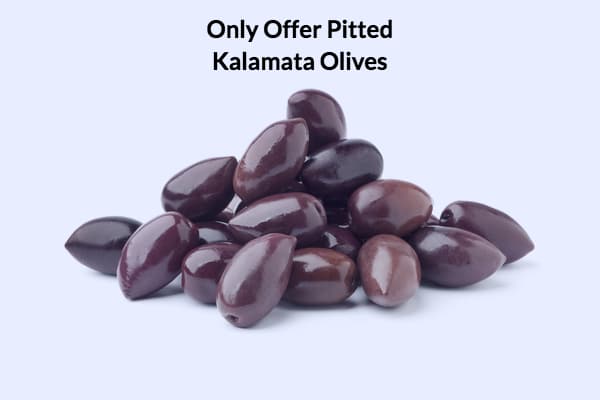Can Dogs Eat Olives?
Sometimes our canine companions deserve a healthy snack outside of their normal treat routine. If you are an olive lover, you may have a few cans on hand in the pantry at all times. Olives are a healthy snack for humans, so are they safe for dogs as well?
In this article we will go into detail about the question of whether or not dogs can eat olives, and help you understand how to best serve olives to your furry friend.
Are Olives Safe For Dogs To Eat?
Olives are safe for dogs to eat in small quantities. While this tasty fruit is not toxic to our canine friends, you will need to follow a few safety guidelines when offering them to your pup. Olives should only be offered in moderation, when they are free of any salt or flavoring, and when their pit has been removed.
We may enjoy the seasoned olives that come in the can, but they can be harmful to our dogs. Seasoned olives tend to be extremely high in sodium, which can easily upset a dog’s stomach. Not only can the salt content in seasoned olives cause GI upset, but it can lead to potential toxicity if they consume a large amount.
Another factor to be aware of is the pit that can be present in some forms of olives. Many products sell pitted olives for our convenience, but you may still run into un-pitted olives from time to time. These pits are similar to the core of other fruits, meaning they are tough and difficult to chew. These pits can cause serious damage to a dog’s tooth, along with becoming a potential choking hazard in small dogs.
Natural, pitted olives are the safest option for your pup. As long as you exercise caution when offering this nutritious snack, your pup can enjoy them safely from time to time.

Health Benefits Of Olives For Dogs
Not only are olives a popular snack due to their flavor, but they are also packed with impressive nutrients. Eating olives has been linked to improved heart health, improved bone health, and even cancer prevention. Some of the many nutrients found in olives include:
- Iron
- Vitamin E
- Calcium
- Copper
- Multiple antioxidants
Olives are also extremely low in carbs while containing healthy fat. A few olives will certainly make your pup happy between meals, and won’t cause too much of a dent into their allotted daily calories for treats.
What Are The Different Kinds Of Olives?
There are over 500 olive varieties around the world. The list of olive types are endless, but there are some common olive types that you will likely see in stores.
Some of the olives that you will typically have access to include:
- Black olives (which are really just green olives that have been cured)
- Nicoise (purple/black)
- Kalamata (dark purple)
- Picholine (green)
- Moroccan cured (black)
- Cerignola (green)
You should always be aware of the type of olive you are offering your pup, as this can help you stay on top of any potential dangers.
Can Dogs Eat Green Olives?

Green olives are safe for our pups to eat. This type of olive has the same nutritional content as black olives, but they do not go through the same curing process.
Green olives are often seasoned with various flavors and additives, so it’s important to ensure that you are only choosing the ones that follow the safety guidelines we mentioned above.
For example, there are some green olives that are seasoned in a jar with chunks of garlic and onion. Both onion and garlic are toxic to dogs, making this extremely dangerous for them to consume. As long as you are diligent about choosing a safe olive option, your pup can eat green olives.
Watch out for seasoned green olives that have onion or garlic. These are toxic to your dog.
Can Dogs Eat Black Olives?

Yes, dogs can eat black olives. Back olives are actually the same as green olives, but they have just gone through a longer curing process. Just be sure to look for a natural and unsalted black olive option, as many canned olives are infused with salt.
Black olives that are infused with flavor and salt can cause an upset stomach in our furry friends.
Avoid salted or seasoned black olives.
Can Dogs Eat Kalamata Olives?

Dogs can eat Kalamata olives as long as you follow a couple rules. Be sure that you only offer your pup pitted Kalamata olives, and that you give them a small amount at a time. Kalamata olives tend to be higher in salt than black olives, meaning they can only have them as an occasional treat.
Avoid Kalamata olives with pits as they can damage your dog’s teeth.
Can Olives Make A Dog Sick?
Olives can be a healthy snack option for dogs, but they can make a dog sick if you are not mindful of how you are offering them. Like we mentioned above, there are a few main factors that you should always consider when choosing olives for you pup: the pit, the salt content, and the serving amount.
If your dog gets their paws on a large amount of olives, you will want to speak to your vet about further care. A large serving of olives may not only upset their stomach, but it could contain an extremely high amount of sodium.
Dogs that eat too much sodium can experience vomiting, diarrhea, lethargy, fever, and even seizures. While this is rare with olive consumption, it can happen.
You should also contact your vet if you think your dog accidentally consumed olives with the pit. This pit can not only damage their teeth, but can cause serious abdominal discomfort and GI symptoms.
Just as you would with any other human food, we always suggest starting slowly when giving your dog an olive for the first time. This can help you determine if your dog has any adverse reactions to the fruit, as well as monitor for any signs of GI upset.
Final Thoughts
Olives can be a healthy treat for your pup when offered in moderation. For the most part olives are safe for dogs as long as you follow our guide above. Be sure to review the information we discussed above so you can safely offer this tasty snack going forward.

My name is Amber. I am a dedicated animal lover that turned my passion into my career. I am a Licensed Vet Tech with 12 years of experience in veterinary medicine, but I recently took my career online to help spread accurate information on animal care. With how vast the online world is, I have a strong desire to ensure that the reader always walks away with helpful pet advice. With the experience I’ve gained from my time in this field, I have been able to travel the world, offering my services to as many animal rescues as I can find. If I am not at my laptop, or back home visiting family, you can find me somewhere in the world, cuddling every furry friend that I can find! More About Us
